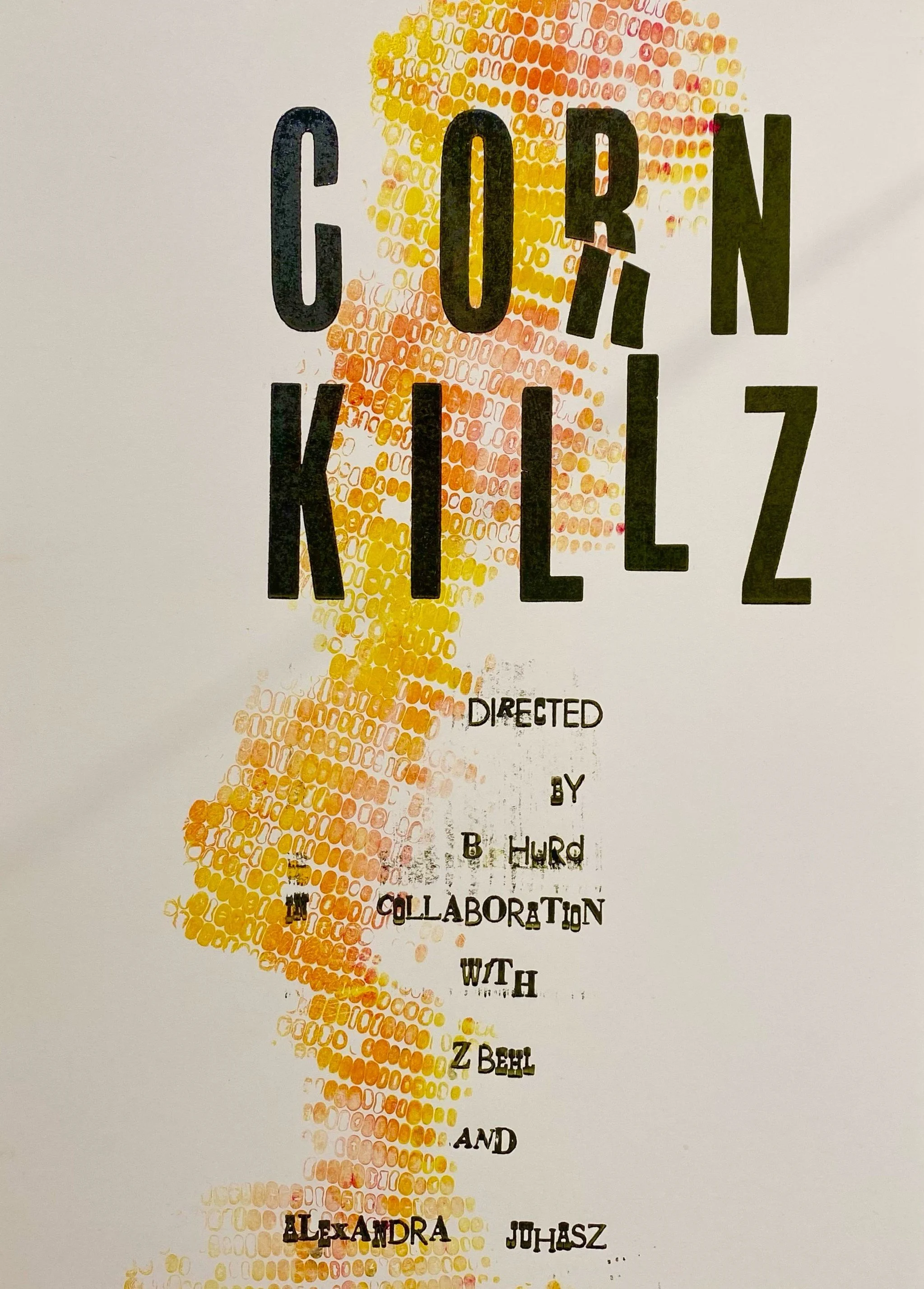Join us at Stove Works for a screening of July Resident’s new work, Corn Kilz at 5 PM, Friday the 28th.
About Bea:
Artist Statement
Items that are connotated with garbage contain reflections of society. My work takes these objects and through ritual, transforms them into sacred elements. I find myself using art as therapy; obtaining items holding uncomfortable memories and gaining ownership through the processes we go through together. Tim Ingold’s Book, Making, was the catalyst for my concept of materiality. The idea that all objects can be viewed as distinct from their accepted mode of function, taught me to view everything as material, and all material as having meaning.
I cycle in and out of “material romances”; seeking materials to form relationships with and allowing them to persuade me. I look to materials that have found their way into my home and past conscious acknowledgment. Mass-produced goods radiate the auras of the makers and consumers; an unconscious reflection produced by endless wandering in reproduction. Products of daily use; those that are used, consumed, and disposed of read like newspapers about who brings such materials into and out of existence so quickly. These expeditions come across as both baptisms and anthropological revelations.
When searching for explorations, I probe supermarkets, gas stations, thrift stores, and kitchens, pining for materials that want to be seen. I know a material intriguing enough to enchant me possesses within it a body of work and a new perspective of myself. Like the tango, a push and pull between my needs and that of the material is established. Products that touch, help, and integrate with our bodies create intimate acts yielding the potential to shape how we think. Ultimately, I gravitate towards materials that go into, are used in relation to, or in replacement of the body. Knowing the act of consumption is abundantly self-motivated, I turn to my own experiences.
As consumption overtly relates to the body, when I wear, consume, or envision the work in relation to my body, the meaning manifests. I digest my material environment and allow for shameless outward expression. Hand-stitching, preserving, and yielding useless have become time-consuming acts which provide me moments of self-reflection and empowerment.
It is integral I exist within the consumption of my work. The processes I impose onto myself are of equal importance as the product. I do not sketch visions of results. Instead, through laborious, redundant, and often humorous tasks, I invite the material to direct me. My work embraces history and production- of materials, processes, and physical changes that occur during the life of the piece. I rarely repair work; broken legs, faded color, and scratches make tapestries of existence. If shows fall apart in their duration, I need only set up a camera and document.
In a society obsessed with consumption, taking moments of production with what is normally so readily disposed of, brings me back into a conscious awareness of my interactions with the material world. I aim to view all materials as being a teacher. And, once I feel that I have received what the material wishes to tell, I move to the next romance.

